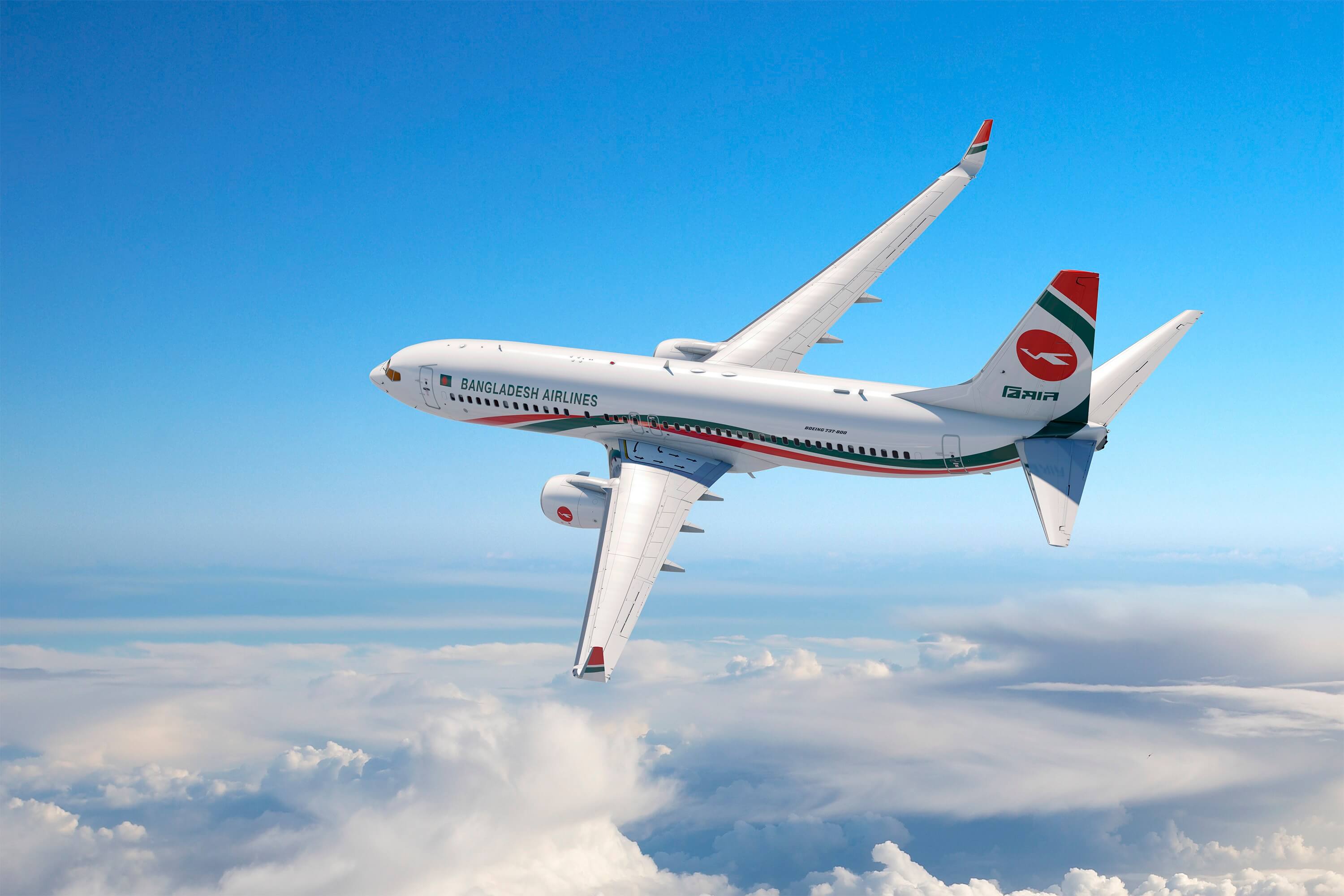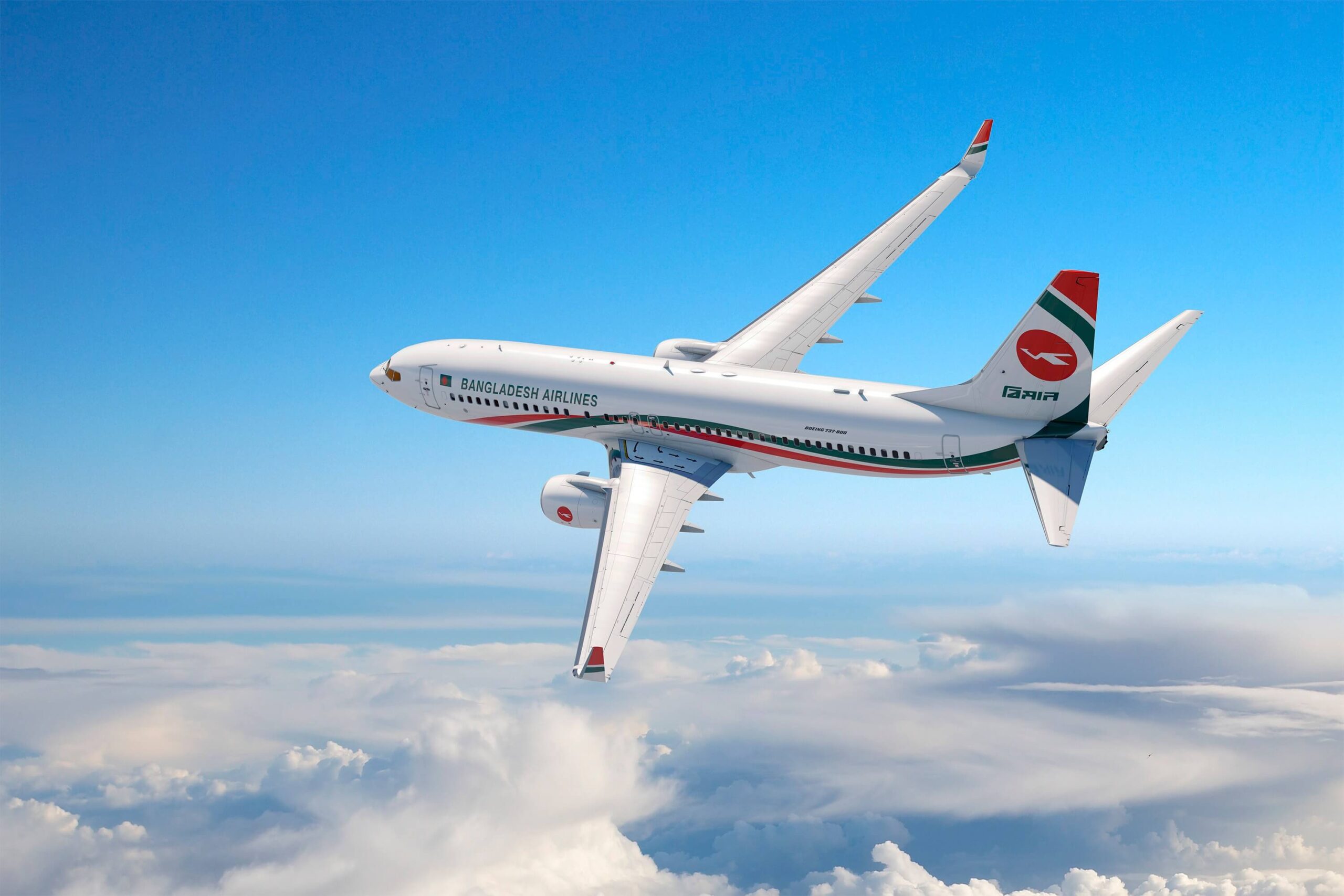By: Salah Uddin Shoaib Choudhury
Biman Bangladesh Airlines, the national flag carrier of Bangladesh, has taken a groundbreaking decision to purchase four Airbus aircraft from France, each costing US$180 million. This marks the first business deal between Biman and Airbus, ending decades of partnership with American Boeing.
US Desperate For Military Base In Bangladesh; Conspires To Carve New State From B’Desh & Myanmar: PM
This surprising shift has shocked Boeing and the US administration, highlighting the complex interplay of aviation, politics, and international relations.
Biman’s decision comes amid growing dissatisfaction with the Biden administration among Bangladesh’s ruling party. Tensions have been high due to what Dhaka perceives as US interference in its domestic affairs.
Accusations of attempts to unseat Prime Minister Sheikh Hasina and support for the Al Qaeda-connected ultra-Islamist Bangladesh Nationalist Party (BNP) and its coalition partner Jamaat-e-Islami (JeI) have soured relations. Washington’s pressure through threats of visa restrictions and sanctions has only exacerbated the situation.
In an interview, Biman’s outgoing Managing Director and CEO, Shafiul Azim, explained the rationale behind the switch: “Any company can face bad times at any time. We’re negotiating with Airbus as part of a long-term plan to ensure we’re not in any kind of danger, that our strength doesn’t wane in the future, and that we’re not exposed to any risk”. Azim referred to recent incidents and technical issues with Boeing’s 737 Max aircraft as part of the risk they aim to mitigate.
In January 2024, Biman’s management decided that purchasing Airbus A350 aircraft would be financially disadvantageous. However, just four months later, the national carrier reversed this stance in favor of Airbus. This shift underscores the dynamic nature of the aviation industry and the strategic decisions airlines must make in response to evolving circumstances.
Boeing, caught off-guard by this decision, emphasized the advantages of sticking with their aircraft. Ryan Weir, Boeing’s Vice-President for Commercial Sales and Marketing in India and South Asia, highlighted an unevaluated proposal by Boeing that included free consultancy services to help upgrade the Civil Aviation Authority of Bangladesh (CAAB) to Category 1 status by the U.S. Federal Aviation Administration. Boeing officials also assured that the Export-Import Bank of the United States (US EXIM Bank) would provide adequate credit for new Boeing aircraft.
Boeing’s Managing Director of Commercial Marketing for Eurasia and the Indian Subcontinent, Ashwin Naidu, pointed out that the Boeing 787s could generate about US$5 million more profit per plane annually for Biman due to fuel efficiency and lower maintenance costs.
Naidu also warned of the additional US$150 million cost over the next 20 years if Biman opted for a mixed fleet of Airbus and Boeing aircraft, citing expenses related to airplane and engine spares, tooling, training, and administrative overheads.
On the other hand, Airbus President and Managing Director in India and South Asia, Remi Maillard, argued that Biman’s current fleet does not benefit from fleet commonality. He noted that Biman’s fleet includes various versions of Boeing aircraft and Dash 8-400, which do not share a common cockpit design, negating the benefits of cross-crew qualification training. Maillard asserted that the A350-900 offers the lowest cost per seat of any large wide-body aircraft, with significant advantages in fuel burn, operating costs, and CO2 emissions.
Bangladesh’s market potential is considerable, and due to robust economic growth, the fleet size is predicted to triple over the next 20 years. This has intensified the competition between Boeing and Airbus.
The tug-of-war has been ongoing since the Bangladesh government decided to acquire more wide-body planes for Biman’s fleet.
Several factors influenced the decision to switch to Airbus, including a joint communique signed in London between the UK’s Minister of State in the Department of Business and Trade, Lord Dominic Johnson, and Bangladesh Prime Minister’s Private Industry and Investment Adviser, Salman F Rahman. This agreement included the purchase of 10 A350 aircraft to establish an aviation and trade partnership aimed at developing Bangladesh’s aviation sector.

Despite the strategic shift, Biman faces significant challenges. In the last fiscal year, the airline incurred a loss of Tk 25.91 crore in its main business, flight operations. Biman is losing money on most of its 22 international routes, with profitability limited to flights to Jeddah, Singapore, and Kuala Lumpur. The carrier’s other services, including ground and cargo handling, catering, and its farm, Biman Poultry Complex, keep it afloat.
Transitioning to a mixed fleet will require major expenditures. While Biman estimated a cost of US$80 million for this transition, Boeing calculated it to be US$146 million. The introduction of Airbus aircraft will necessitate extensive training for new crews and engineers, adding to the cost and complexity of the transition. Additionally, Biman will need to invest US$61.8 million in spare engines and parts for the Airbus planes.
Despite these challenges, Biman’s move to Airbus represents a strategic decision aimed at ensuring the airline’s long-term stability and competitiveness. The low-interest loan from an export credit agency will cover 80-85 percent of the financing for the new aircraft, with the remaining funds likely sourced from high-interest commercial loans.
Biman Bangladesh Airlines’ switch from Boeing to Airbus marks a significant shift in the airline’s strategy and a response to broader geopolitical dynamics. This decision highlights the complexities of the aviation industry, where economic, operational, and political factors converge to shape the future of national carriers.
- Salah Uddin Shoaib Choudhury is an internationally acclaimed multi-award-winning journalist, writer, research scholar, counterterrorism specialist, and Editor of Blitz, a newspaper published from Bangladesh since 2003. He regularly writes for local and international newspapers. Follow him on X @Salah_Shoaib
- Views Personal


